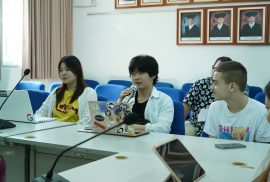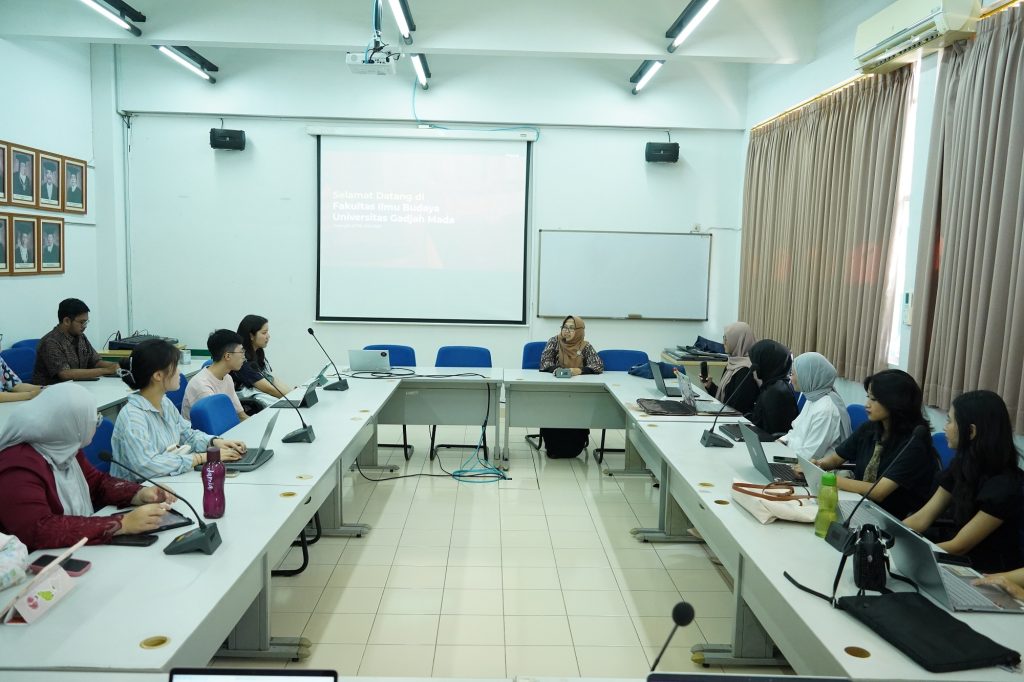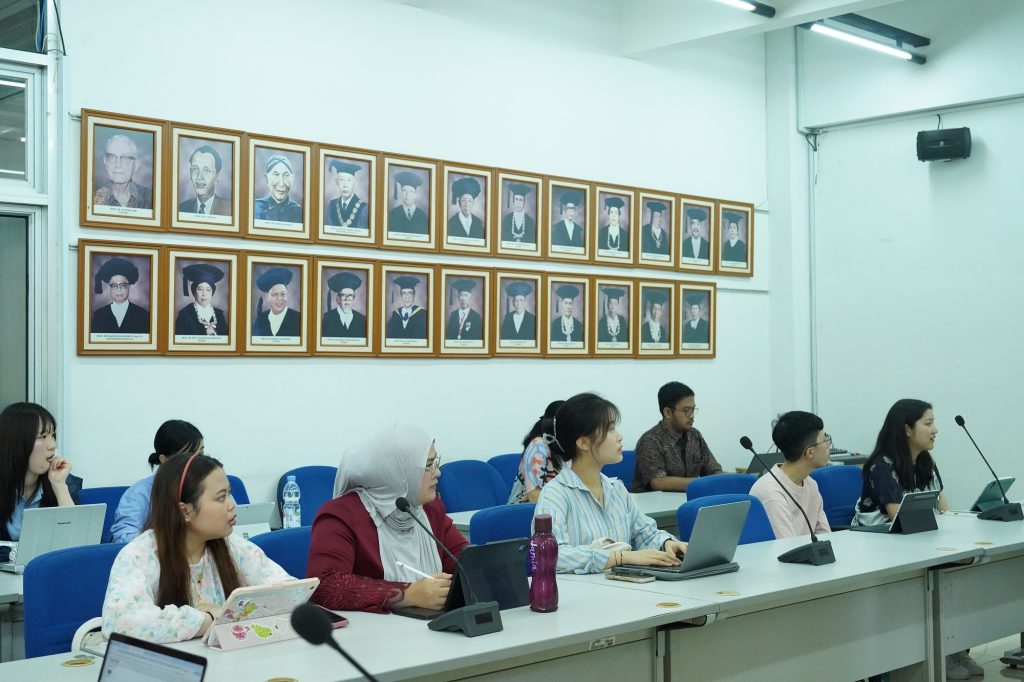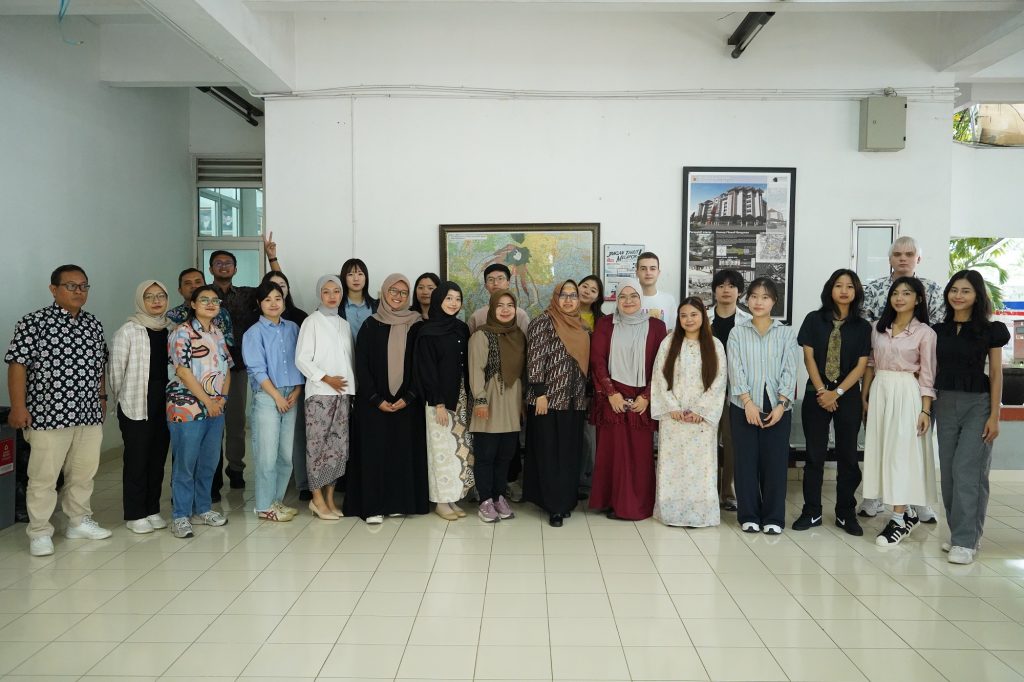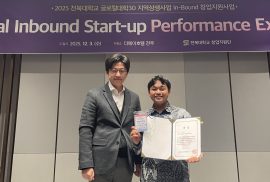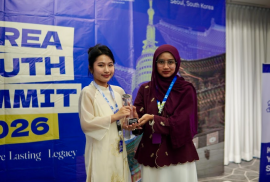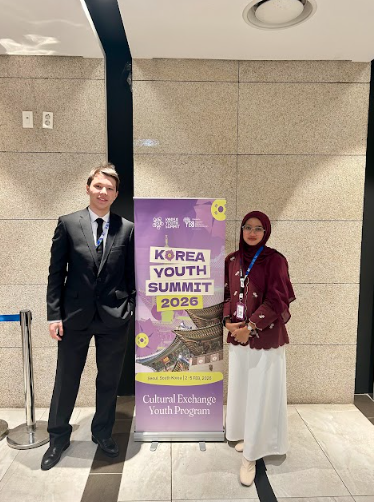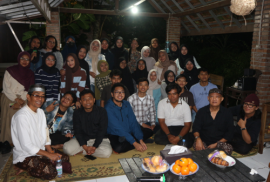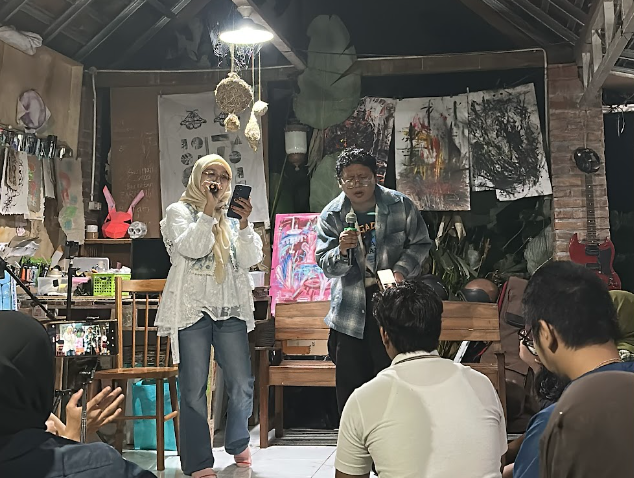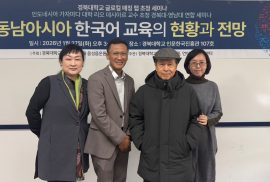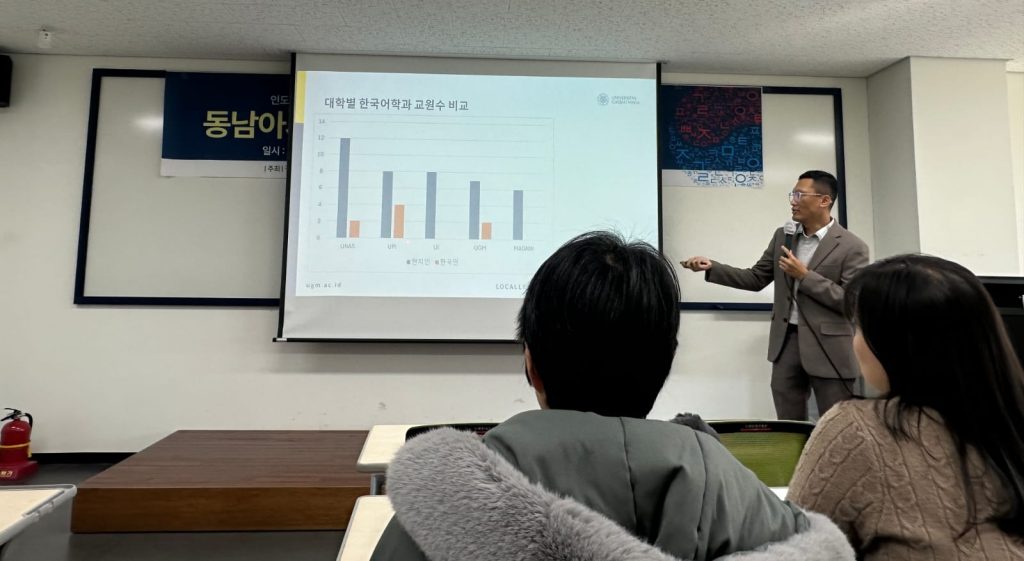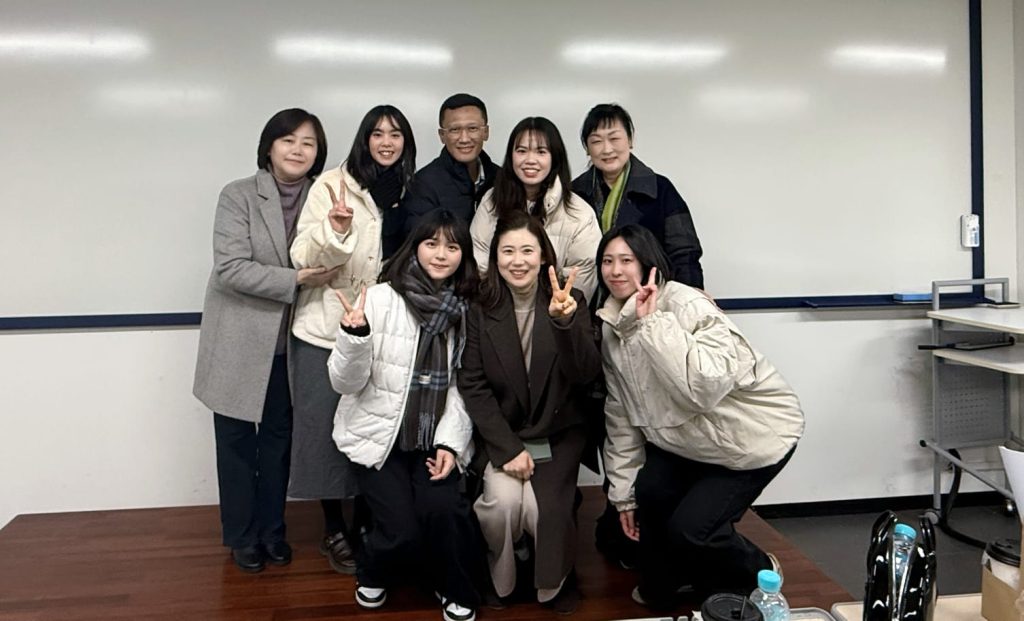The Faculty of Cultural Sciences at Universitas Gadjah Mada (FIB UGM) held an orientation session and course registration for National and International Student Exchange participants for the even semester of 2026. The event took place in Meeting Room 1, Poerbatjaraka Building, FIB UGM. It was attended by students from South Korea, Taiwan, Brunei Darussalam, Italy, and Japan, as well as from Universitas Brawijaya, Universitas Sebelas Maret, Universitas Andalas, and Universitas Udayana. The Vice Dean for Academic and Student Affairs of FIB UGM was also present at the event.
The session aimed to provide students with an understanding of the faculty environment and academic system, including class schedules, the academic calendar, and classroom learning culture. In his remarks, the Vice Dean stated, “We hope the students will adapt well and make the most of this opportunity to enrich their academic and cross-cultural experiences.”
Through this activity, FIB UGM seeks to foster an open and collaborative learning environment amid the diverse backgrounds of its students. Cross-campus and cross-country interactions are expected to strengthen academic networks while supporting students’ continuous capacity development.
[Public Relations of FIB UGM, Candra Solihin]

